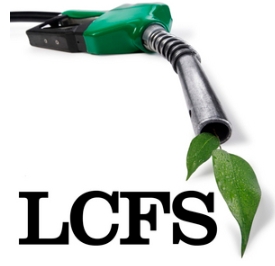
On November 8, 2024, CARB approved LCFS updates aiming to reduce transportation fuel carbon intensity by 30% by 2030 and 90% by 2045. The revisions include requirements for fuel producers to trace crop- and forestry-based feedstocks to their origin, independent certification to ensure sustainable biomass-based diesel and aviation fuel feedstocks, a ban on palm-derived fuel credits, caps on soybean, canola, and sunflower oil use in biodiesel, and a phase-out of avoided methane crediting for biomethane as a combustion fuel, while extending its use for renewable hydrogen.
On January 3, CARB submitted the final LCFS amendments to the California Office of Administrative Law (OAL). However, on February 18, OAL signaled disapproval, citing clarity issues with 26 provisions. On February 25, OAL issued a formal Decision of Disapproval, pausing implementation. Under state law, CARB has 120 days to revise and resubmit, with significant changes requiring further public comment.
Industry groups raised concerns during the April comment period. The RFA criticized CARB’s feedstock sustainability criteria: “With its latest proposed modifications to the LCFS program, CARB had an opportunity to substantially revise or remove its needless sustainability requirements for U.S.-origin ethanol feedstocks. Instead, CARB made only a few slight tweaks to other provisions and the agency appears poised to move ahead with its costly and burdensome sustainability criteria.” The RFA noted that corn acres for California’s ethanol demand have decreased by 700,000 acres since 2011, challenging CARB’s rationale for the requirements.
Growth Energy’s CEO, Emily Skor, stated: “Despite OAL’s rejection of the proposed amendments for their lack of clarity, CARB’s revisions fall short by failing to add any meaningful details to the amendments’ sustainability provisions. CARB’s proposal still undermines the important role that crop-based renewable fuels must play in decarbonizing the transportation sector in California.”
Clean Fuels Alliance America opposed caps on soybean, canola, and sunflower oils and a new proposal to limit biomass-based diesel fuel pathways after January 1, 2031, if zero- or near-zero-emission vehicle targets are met. The RNG Coalition emphasized: “Given the LCFS credit surpluses, a significant stepdown in the Annual Carbon Intensity Benchmarks cannot be delayed any further.” The American Biogas Council added: “The recent administrative disapproval of the program’s amendments from the Office of Administrative Law has unfortunately delayed the implementation of these vital amendments.”
CARB is urged to address OAL’s concerns swiftly to finalize the amendments and support California’s clean fuel goals.